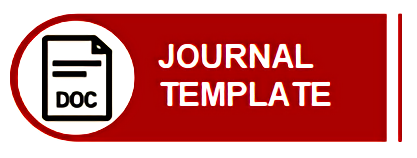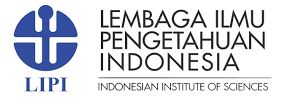The Impact of the Job Creation Law on the Concept of Limited Liability Companies in Indonesia
Abstract
Various controversies are present along with the issuance of the omnibus law with its copyright law. The presence of this regulation revokes at least 80 other special laws, one of which is the Limited Liability Company Law Number 40 of 2007 concerning Limited Liability Companies. The issues raised in this research are the concept and implications of the issuance of the copyright law on the legal arrangements of limited liability companies. This research study uses doctrinal normative research with primary, secondary and tertiary legal materials from literature studies. After the research, the results show that the applied method of this omnibus law is the method of legislation by combining various types of laws in a special law. This gives room to eliminate the various interests of each into just one name of interest. In the drafting process, it has violated the principles of openness and participation and is vague in its legal basis. The implication in the limited liability company law is that it raises provisions regarding the individual company model whose concept is contradictory and provisions that eliminate the minimum capital limit of the company, which is feared to result in the vulnerability of a business continuity.
___
References
Books with an author:
Asikin, Z., & Suhartana, W. P. (2016). Pengantar Hukum Perusahaan. Jakarta: Prenadamedia Group.
Bosc, M., & Gagnon, A. (2017). House of Commons Procedure and Practice. Ontario: House of Commons.
Christiawan, R. (2021). Omnibus Law: Teori dan Penerapannya. Jakarta: Bumi Aksara.
Kartika, S. D. (2020). Politik Hukum RUU Cipta Kerja. Jakarta: Puslit BKD DPR RI.
Marzuki, P. M. (2005). Penelitian Hukum. Jakarta: Kencana Prenada.
Rahardjo, S. (2010). Ilmu Hukum. Bandung: PT Citra Aditya Bakti.
Raharjo, H. (2009). Hukum Perusahaan. Yogyakarta: Penerbit Pustaka Yustisia.
Sunaryati, H. (1994). Penelitian Hukum di Indonesia pada Akhir Abad ke-20. Bandung: Alumni.
Sutedi, A. (2015). Buku Pintar Hukum Perseroan Terbatas. Jakarta: Raih Asa Sukses.
Books with an editor:
Eddyono, S. W. (ed). (2020). Catatan Kritis terhadap UU No 11 Tahun 2020 tentang Cipta Kerja (Pengesahan DPR 5 Oktober 2020). Yogyakarta: Fakultas Hukum Universitas Gadjah Mada.
Eddyono, S. W. (ed). (2020). Kertas Kebijakan: Catatan Kritis dan Rekomendasi Terhadap RUU Cipta Kerja. Yogyakarta: Fakultas Hukum Universitas Gadjah Mada.
Journal articles:
Anggono, B. D. (2020). Omnibus Law Sebagai Teknik Pembentukan Undang-Undang: Peluang Adopsi dan Tantangannya Dalam Sistem Perundang-Undangan Indonesia. Jurnal Rechts Vinding, 9(1), 17-37.
Azhar, M. (2019). Omnibus Law sebagai Solusi Hiperregulasi Menuju Sonkronisasi Peraturan Perundang-undangan di Indonesia. Administrative Law and Governance Journal, 2(1), 170-178.
Aziz, M. F., & Febriananingsih, N. (2020). Mewujudkan Perseroan Terbatas (PT) Perseorangan bagi Usaha Mikro Kecil (UMK) melalui Rancangan Undang-Undang tentang Cipta Kerja. Jurnal Rechts Vinding: Media Pembinaan Hukum Nasional, 9(1), 91-108.
Darmawan, A. (2020). Politik Hukum Omnibus Law Dalam Konteks Pembangunan Ekonomi Indonesia. Indonesian Journal of Law and Policy Studies, 1(1), 13-24.
Dodek, A. M. (2016). Omnibus Bills: Constitutional Constraints and Legislative Liberations. Ottawa L. Rev., 48, 1.
Massicotte, L. (2013). Omnibus Bills in Theory and Practice. Canadian Parliamentary Review, 36(1), 13-17.
Permwanichagun, P., Kaenmanee, S., Naipinit, A., & Sakolnakorn, T. P. N. (2014). The Situations of Sole Proprietorship, E-commerce Entrepreneurs and Trends in their E-commerce: A Case Study in Thailand. Asian Social Science, 10(21), 80-88.
Purwanda, S., & Wulandari, A. S. R. (2023). Socio-Legal Studies: Methodical Implications of Legal Development in Indonesia. Al-'Adl, 16(2), 152-163.
Setiadi, W. (2020). Simplifikasi Regulasi dengan Menggunakan Metode Pendekatan Omnibus Law. Jurnal Rechts Vinding: Media Pembinaan Hukum Nasional, 9(1), 39-52.
Sinaga, N. A. (2018). Hal-Hal Pokok Pendirian Perseroan Terbatas di Indonesia. Jurnal Ilmiah Hukum Dirgantara, 8(2), 17-45.
Sinaga, L. V., & Lestari, C. I. (2021). Analisis Yuridis Pertanggungjawaban Direksi Terhadap Pailitnya Suatu Perseroan Terbatas. JURNAL RECTUM: Tinjauan Yuridis Penanganan Tindak Pidana, 3(1), 25-34.
Sutrisno, N., & Poerana, S. A. (2020). Reformasi Hukum dan Realisasi Investasi Asing pada Era Presiden Joko Widodo. Undang: Jurnal Hukum, 3(2), 237-266.
World Wide Web:
Indrati, M. F. (2020). “Omnibus Law”, UU Sapu Jagat?. Available online from: https://www.kompas.id/baca/opini/2020/01/04/omnibus-law-uu-sapu-jagat .
Kementerian Perindustrian Republik Indonesia. (2023). Investasi Sektor Manufaktur Naik 52 Persen di Tahun 2022, Tembus Rp 497,7 Triliun. Available online from: https://kemenperin.go.id/artikel/23838/Investasi-Sektor-Manufaktur-Naik-52-Persen-di-Tahun-2022 .
Muladi. (2019). RKUHP sebagai “Omnibus Law”. Available online from: https://www.kompas.id/baca/utama/2019/11/27/rkuhp-sebagai-omnibus-law .
Tempo. (2020). Kemudahan Berbisnis Naik ke Peringkat 73, Jokowi Minta Posisi 40. Available online from: https://bisnis.tempo.co/read/1306661/kemudahan-berbisnis-naik-ke-perangkat-73-jokowi-minta-posisi-40 .






1.png)






.png)

















